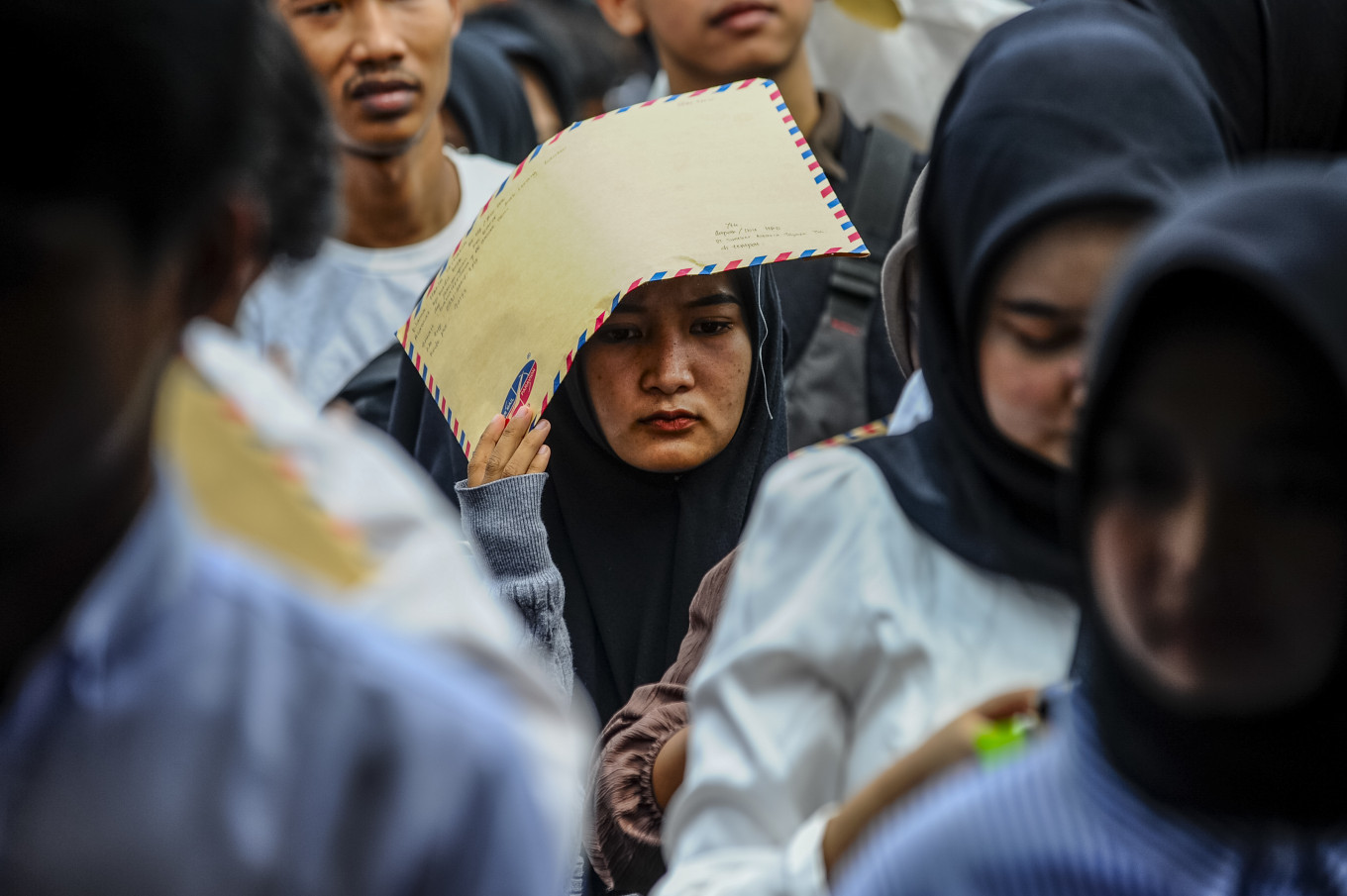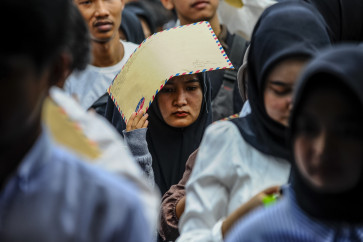Popular Reads
Top Results
Can't find what you're looking for?
View all search resultsPopular Reads
Top Results
Can't find what you're looking for?
View all search resultsIndonesia faces brain drain as skilled graduates leave for jobs abroad
Indonesia has seen an increasing outflow of skilled young adults seeking work abroad in a brain drain phenomenon experts attribute to concern around job opportunities within the country.
Change text size
Gift Premium Articles
to Anyone
I
ndonesia has seen an increasing outflow of skilled young adults seeking work abroad in a brain drain phenomenon experts attribute to concern around job opportunities within the country.
Twenty-five-year-old political science graduate Fikri Haikal obtained a working holiday visa (WHV) in Australia and now makes a living as a poultry factory worker.
“I never thought I would be a factory worker,” he said, explaining that his original plan had been to go abroad for higher education, but he failed to get a scholarship, and peer influence then convinced him to join the WHV program instead.
He had searched and applied for jobs in Indonesia, Fikri said, but received no job offers. “Meanwhile, in Australia, securing a job is easy, because there is a shortage of labor in certain sectors, such as in manufacturing,” he told The Jakarta Post on May 23.
Indonesians are the largest citizenship group in Australia’s WHV program, with the number of granted visas surging from 2,984 in the 2022-2023 period to 4,285 in 2023-2024, according to the Australian Department of Home Affairs.
On social media, graduates and young professionals have been sharing their experiences with the WHV program, citing better pay and quality of life, though some caution that “it is not as easy as it looks”.
Frustrated jobseekers



















